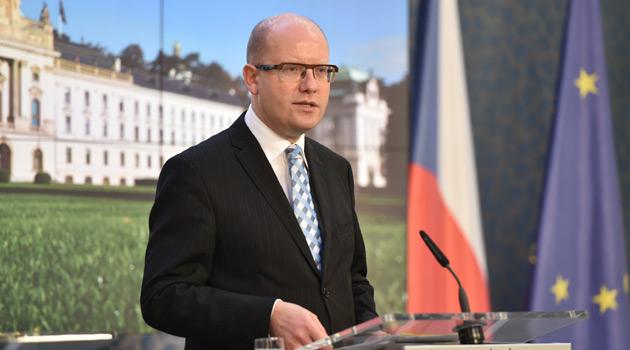Czech PM says EU must become less bureaucratic, Slovak Govt tells its nationals in Britain not to worry yet

The website of the Czech Embassy in London reports that Czech Foreign Minister Lubomír Zaorálek and Czech Prime Minister Bohuslav Sobotka have responded to the results of the referendum in the United Kingdom on its EU membership, which are that most voters have chosen to leave. The Slovak Foreign Ministry meanwhile has assured its citizens living and working in Britain that during the two-year transition period they do not have to fear any changes to their legal position.
Europe must become less bureaucratic
According to Zaorálek, the Czech Republic respects the results of the referendum and the European Union will carry on. He expressed the hope that the Czech Republic would be able to learn the lessons of the referendum results.
“This result is an example of what happens when European politicians do not sufficiently explain the steps they take to the public,” the Czech Foreign Minister said. For his part, Czech Prime Minister Sobotka said the European Union will never be the same.
“Now we must hold a fundamental debate, as soon as possible, about our future direction and what we expect from a united Europe,” the Czech PM said. He believes the announcement of the UK’s decision to leave will launch at least two years of negotiations about what bilateral relations with the EU and its individual Member States will look like in the future.
“The British will certainly have less influence over what goes on in Europe and their country will be less important and weaker overall,” Sobotka said. In his view, the EU must become less bureaucratic, more capable of taking action, more flexible, and more sensitive when it comes to the diversity naturally represented by its 27 Member States.
Slovaks should not be concerned for now
The Slovak Embassy in London is informing its citizens living and working in Great Britain that they do not have to fear any changes to their legal position in connection with Brexit, as the transition period will take two years. That time will not begin until the British Government officially announces its decision to leave to the European Union.
“The subsequent establishing of diplomatic relations and the legal position of EU citizens in Great Britain and of British citizens in other EU countries once the transition period is over will depend on negotiations and citizens will be informed of them long before they take effect,” says the website of the Slovak Embassy. The Slovak Foreign Ministry said it has accepted the negative result of the referendum on Great Britain’s membership in the European Union with regret.
“We note this decision and we respect it. At the same time, we emphasize that until the process of leaving the EU is completed, the United Kingdom remains an EU Member State with all of the rights and obligations that entails,” the Slovak Foreign Ministry said.
Slovakia considers it no less important that the EU undergo internal reflection over these results with the aim of bolstering citizens’ faith in the common European project. “The Slovak Republic has been and continues to be convinced that the European Union is the best way forward for our country and for the European continent. It has brought peace, prosperity, stability and tangible advantages to its citizens… We must offer our citizens a better Europe that is easier to understand,” said the Slovak Foreign Ministry.
Slovakia will preside over the Council of the EU as of 1 July. Slovak officials say they are prepared to play an active, responsible role in the process of dealing with Brexit.
